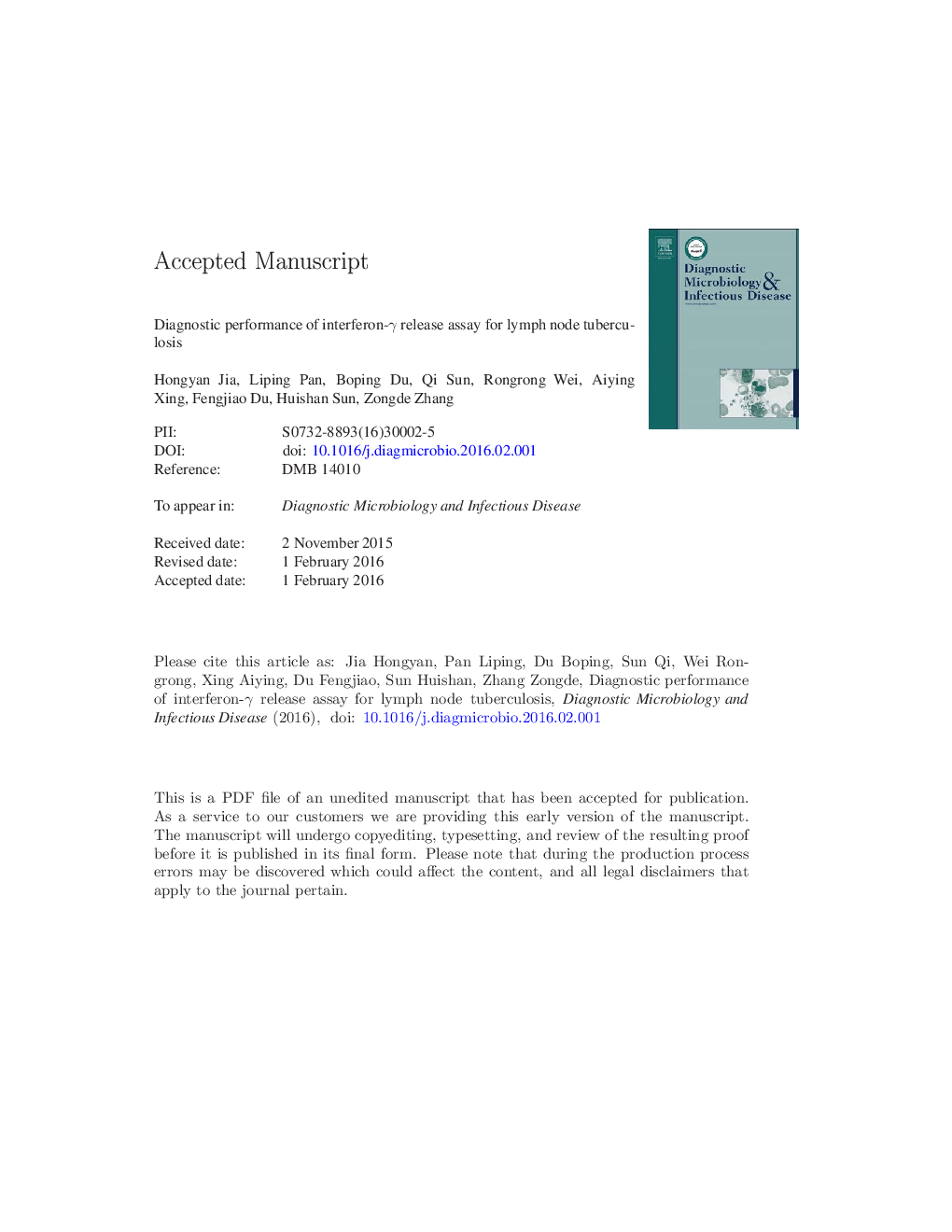| Article ID | Journal | Published Year | Pages | File Type |
|---|---|---|---|---|
| 10168255 | Diagnostic Microbiology and Infectious Disease | 2016 | 21 Pages |
Abstract
The aim of the study was to evaluate the performance of interferon-γ (IFN-γ) release assay (IGRA) (T-SPOT.TB) for patients with suspected lymph node tuberculosis (TB). Of the 405 patients with suspected lymph node TB, enrolled from Beijing Chest Hospital between July 2011 and April 2015, 83 (20.5%) were microbiologically/histopathologically confirmed lymph node TB, and 282 (69.6%) did not have active TB. The remaining 21 inconclusive TB and 19 clinical TB were excluded from the final analysis (9.9%). T-SPOT.TB using peripheral blood mononuclear cells was performed to examine the IFN-γ response to the Mycobacterium tuberculosis-specific antigens early secretory antigenic target 6 and culture filtrate protein 10. The overall sensitivity and specificity for T-SPOT.TB were 90.4% and 70.5%, respectively. Spot-forming cells in the lymph node TB group (184 [48-596/106 peripheral blood mononuclear cells {PBMCs}]) were significantly higher than that in the nonactive TB group (0 [0-41]/106 PBMCs) (P < 0.001). These results suggest that the IGRA assay could be a useful aid in the diagnosis of lymph node TB.
Related Topics
Life Sciences
Immunology and Microbiology
Applied Microbiology and Biotechnology
Authors
Hongyan Jia, Liping Pan, Boping Du, Qi Sun, Rongrong Wei, Aiying Xing, Fengjiao Du, Huishan Sun, Zongde Zhang,
